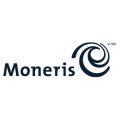For businesses seeking to optimise their operations and enhance customer experiences, an enterprise POS system is a critical investment. Whether you run a large retail chain, a bustling restaurant franchise, or a complex multi-location enterprise, a robust POS system can streamline your processes and drive growth. This guide will walk you through everything you need to know about enterprise POS systems, from their essential features to the benefits they offer and how to choose the right one for your business.
What is an Enterprise POS System?
An enterprise POS (Point of Sale) system is a comprehensive solution designed to manage sales transactions, inventory, employee management, and customer relations across multiple locations. Unlike standard POS systems, enterprise POS systems are equipped to handle the complexities of large-scale operations, including multi-store management and advanced reporting capabilities.
Key Features of an Enterprise POS System
1. Scalability
An enterprise POS system must be scalable to accommodate the growth of your business. This means it should efficiently handle an increasing number of transactions, customers, and inventory items without compromising performance. Scalability ensures that as your business expands, your POS system can keep up with the demand.
Importance of Scalability:
- Handling Growth: As your business grows, the volume of transactions and inventory increases. A scalable POS system can manage this growth without slowing down or crashing.
- Future-Proofing: Investing in a scalable POS system means you won't need to replace it as your business expands, saving you time and money.
- Customer Experience: A scalable system ensures a smooth checkout process even during peak times, maintaining a positive customer experience.
2. Integration
Integration with other business systems is crucial for an enterprise POS system. This includes seamless connectivity with CRM (Customer Relationship Management) systems, ERP (Enterprise Resource Planning) software, and e-commerce platforms. Integration streamlines operations by automating data flows between systems, reducing errors, and saving time.
Benefits of Integration:
- Data Synchronisation: Real-time data exchange between systems ensures consistency and accuracy across your business.
- Process Automation: Integration automates tasks such as inventory updates, order processing, and customer data management, improving efficiency.
- Enhanced Reporting: Consolidated data from various systems provides comprehensive insights, aiding in better decision-making.
3. User-Friendliness
Even the most feature-rich POS system is only as good as its usability. An intuitive, user-friendly interface is essential to minimise training time and maximise productivity. Staff should be able to navigate the system effortlessly, ensuring smooth and efficient operations.
Advantages of User-Friendliness:
- Reduced Training Time: An easy-to-use interface means less time spent on training new employees, allowing them to start contributing sooner.
- Fewer Errors: A straightforward system reduces the likelihood of mistakes during transactions, inventory management, and reporting.
- Increased Productivity: Employees can perform their tasks more quickly and efficiently with a user-friendly POS system.
4. Advanced Reporting
Advanced reporting features are vital for making data-driven decisions. An enterprise POS system should provide detailed insights into sales trends, inventory levels, employee performance, and customer behaviour. Customizable reports help you monitor key performance indicators (KPIs) and identify areas for improvement.
Benefits of Advanced Reporting:
- Informed Decisions: Access to detailed data allows you to make strategic decisions based on accurate information.
- Trend Analysis: Identify sales patterns, peak periods, and customer preferences to optimize your operations and marketing strategies.
- Performance Monitoring: Track employee performance and productivity to ensure optimal staffing and identify top performers.
5. Multi-Location Management
Managing multiple locations requires robust POS capabilities. An enterprise POS system should enable you to oversee all your stores from a central dashboard, track inventory across locations, and standardize operations. This centralized control helps maintain consistency and efficiency throughout your business.
Importance of Multi-Location Management:
- Centralized Control: Manage all your stores from a single platform, ensuring consistent operations and policies across locations.
- Inventory Optimization: Track and manage inventory across all locations to prevent stockouts and overstocking.
- Unified Reporting: Consolidate data from all stores for comprehensive analysis and reporting.
6. Security Features
Security is paramount in handling financial transactions and sensitive customer data. Look for POS systems with robust security features, such as data encryption, secure user authentication, and compliance with industry standards like PCI DSS (Payment Card Industry Data Security Standard).
Security Benefits:
- Data Protection: Encryption and secure authentication protect sensitive data from breaches and unauthorised access.
- Compliance: Adhering to industry standards ensures your POS system meets legal and regulatory requirements.
- Customer Trust: Robust security measures build trust with customers, ensuring their data is safe.
7. Customer Relationship Management
An integrated CRM feature allows you to manage customer data, track purchase history, and run targeted marketing campaigns. Enhancing customer engagement through loyalty programs and personalized promotions can drive repeat business and increase customer satisfaction.
CRM Advantages:
- Customer Insights: Access to detailed customer data helps you understand their preferences and shopping habits.
- Targeted Marketing: Run personalized marketing campaigns based on customer data to increase engagement and sales.
- Loyalty Programs: Implement loyalty programs to reward repeat customers and foster long-term relationships.
8. Employee Management
Efficiently managing your workforce is crucial for smooth operations. A good enterprise POS system should include features for time tracking, shift scheduling, and performance monitoring. This helps ensure optimal staffing levels and identifies top-performing employees.
Employee Management Benefits:
- Optimized Scheduling: Create and manage employee schedules to ensure adequate staffing during peak times.
- Performance Tracking: Monitor employee performance and productivity to identify training needs and top performers.
- Time Management: Efficiently track employee hours and attendance to streamline payroll processes.
Benefits of an Enterprise POS System
1. Increased Efficiency
By automating routine tasks and streamlining processes, an enterprise POS system boosts operational efficiency. This allows your staff to focus on delivering excellent customer service and other high-value activities.
Efficiency Gains:
- Task Automation: Automate inventory updates, order processing, and reporting to reduce manual workload.
- Streamlined Operations: Integrate various business functions into a single system to enhance coordination and efficiency.
- Resource Allocation: Free up staff time for more strategic and customer-facing tasks.
2. Improved Customer Experience
A fast and seamless checkout process is essential for customer satisfaction. An enterprise POS system reduces wait times, supports various payment methods, and integrates loyalty programs, providing a superior shopping experience.
Enhancing Customer Experience:
- Quick Transactions: Reduce checkout times with efficient processing of payments and returns.
- Payment Flexibility: Support multiple payment options, including credit cards, mobile wallets, and contactless payments.
- Loyalty Integration: Integrate loyalty programs to reward repeat customers and personalize their shopping experience.
3. Enhanced Inventory Management
Real-time inventory tracking and automated reordering prevent stockouts and overstocking. This ensures that you always have the right products available, minimizing losses and maximizing sales opportunities.
Inventory Management Benefits:
- Real-Time Tracking: Monitor inventory levels in real-time to ensure accurate stock information.
- Automated Reordering: Set reorder points to automatically replenish stock, preventing stockouts.
- Optimized Stock Levels: Maintain optimal inventory levels to minimize carrying costs and maximize sales.
4. Better Decision Making
Access to detailed analytics and reports empowers you to make informed decisions. Understanding sales trends, customer preferences, and employee performance helps you optimize operations and strategies.
Decision-Making Insights:
- Sales Trends: Analyse sales data to identify best-selling products and peak shopping times.
- Customer Preferences: Use customer data to tailor your product offerings and marketing strategies.
- Performance Metrics: Monitor key performance indicators (KPIs) to assess and improve business performance.
5. Streamlined Operations
Integrating all aspects of business management into a single system simplifies operations. From handling transactions to managing employees and inventory, an enterprise POS system ensures all your business functions run smoothly.
Operational Streamlining:
- Unified Platform: Manage all business functions from a single, integrated platform.
- Consistent Processes: Standardize operations across all locations for consistency and efficiency.
- Improved Coordination: Enhance communication and coordination between departments with integrated systems.
6. Cost Savings
While the initial investment in an enterprise POS system can be significant, the long-term cost savings are substantial. By reducing manual errors, optimizing inventory, and improving staff productivity, you can achieve significant operational savings.
Cost-Saving Benefits:
- Error Reduction: Minimise costly errors in transactions and inventory management.
- Inventory Optimization: Reduce excess inventory and associated carrying costs.
- Productivity Gains: Enhance staff productivity and efficiency, leading to lower operational costs.
How to Choose the Right Enterprise POS System
1. Identify Your Needs
Assess your business's specific requirements before selecting a POS system. Consider factors such as the size of your inventory, the number of employees, and the types of payments you need to accept. Understanding your needs will help you choose a system that fits your business.
2. Evaluate Features
Compare different POS systems based on their features. Look for systems that offer robust inventory management, detailed reporting, and comprehensive payment processing capabilities. Ensure the system can handle the unique demands of an enterprise business.
3. Consider Ease of Use
The POS system should be user-friendly and easy to learn. A complicated system can slow down operations and lead to errors. Choose a system with an intuitive interface and provide adequate training for your staff.
4. Check Compatibility
Ensure the POS system is compatible with your existing hardware, such as barcode scanners and payment terminals. Compatibility with other software, like accounting or e-commerce platforms, can also be beneficial.
5. Look for Support and Training
Choose a POS provider that offers excellent customer support and training. This ensures you can quickly resolve any issues that arise and get the most out of your system. Look for providers that offer 24/7 support and comprehensive training resources.
6. Assess Cost
Consider the total cost of ownership, including upfront costs, monthly fees, and any additional charges for features or support. Ensure the system fits within your budget while meeting your needs.
Moneris: Your Ideal POS Partner
When it comes to choosing the best enterprise POS system, Moneris stands out as a top choice. As a leading Canadian payment processing company, Moneris provides a range of solutions tailored to meet the needs of large businesses.
Moneris offers:
- Robust Features: Moneris POS systems are equipped with advanced inventory management, detailed reporting, and comprehensive payment processing capabilities.
- User-Friendly Interface: The intuitive design of Moneris’ POS systems makes them easy to use, reducing the learning curve for your staff.
- Compatibility: Moneris POS systems are compatible with a wide range of hardware and software, providing flexibility and integration with your existing systems.
- 24/7 Support and Training: Moneris offers exceptional customer support and comprehensive training resources to ensure you can resolve any issues quickly and make the most of your POS system.
- Cost-Effective Solutions: With competitive pricing and various plans to suit different business sizes and needs, Moneris provides excellent value for money.
By choosing Moneris, you can equip your enterprise with a reliable, efficient, and scalable POS system that enhances your operations and improves customer satisfaction.
An enterprise POS system is essential for businesses looking to streamline their operations and enhance customer experiences. By understanding the key features and benefits of enterprise POS systems and carefully evaluating your options, you can choose the right system to help your business thrive. With Moneris, you can trust that you’re getting a top-tier solution that will support your business’s growth and success.
Key Takeaways
- Understand Your Needs: Assess your business’s specific requirements before selecting an enterprise POS system.
- Focus on Features: Look for systems with robust inventory management, reporting, and payment processing capabilities.
- Ease of Use: Choose a user-friendly system and provide adequate training for your staff.
- Consider Compatibility: Ensure the system works with your existing hardware and software.
- Support and Cost: Select a provider with excellent support and ensure the system fits within your budget.
Article filed under:
EducationShare




